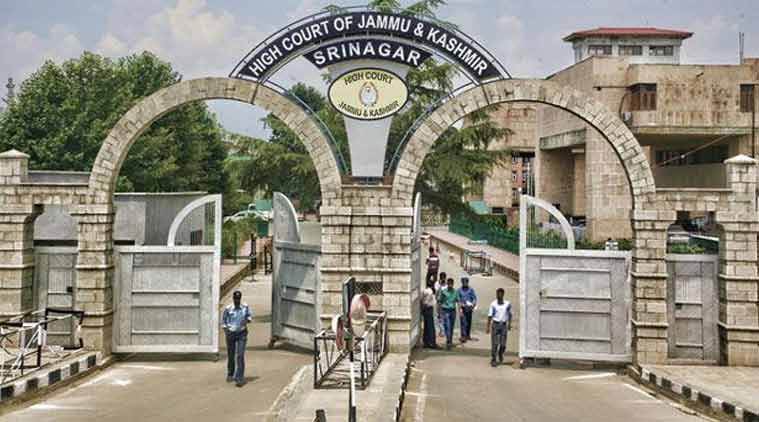 Judge Rabastan’s observations are in sharp contrast to the manner in which the court has in the past quashed orders passed by the administration under the PSA. (File)
Judge Rabastan’s observations are in sharp contrast to the manner in which the court has in the past quashed orders passed by the administration under the PSA. (File)
Dismissing a petition against preventive custody under the stringent Public Safety Act (PSA), a single judge bench of the J&K High Court on Friday made two remarks that are likely to hold implications for the 300-odd such petitions pending in court — that preventive detention under PSA is “based on suspicion or anticipation and not on proof” and that “subjective satisfaction” of detaining authority to detain a person or not “is not open to objective assessment by a court”.
Justice Tashi Rabastan, while dismissing a petition filed by J&K High Court Bar Association president Mian Qayoom, who is in custody under PSA, also said that a “court is not a proper forum to scrutinise the merits of administrative decision to detain a person” and that this matter “lies within the competence of the Advisory Board”.
“While saying so, this court does not sit in appeal over decision of detaining authority and cannot substitute its own opinion over that of detaining authority when grounds of detention are precise, pertinent, proximate and relevant,” the judge said.
At least 300 cases challenging preventive detentions made under the PSA — the law allows for detention without a formal charge and without trial for up to two years — are pending before the High Court.
Judge Rabastan’s observations are in sharp contrast to the manner in which the court has in the past quashed orders passed by the administration under the PSA. As reported by The Indian Express, an analysis of 39 orders passed since the Pulwama attack on February 14 and until August 14 had revealed that courts had dismissed 80% of the PSA cases on grounds that there was either no application of mind or that there was no need for PSA when there are other laws to take action.
Also, the PSA Advisory Board is meant to act as a check and balance on the government’s use of PSA. However, as earlier reported by The Indian Express, since August 5, only three of the 230 orders of preventive detention were rejected by the Board.
However, on Friday, Justice Rabastan observed: “A court is not a proper forum to scrutinise the merits of administrative decision to detain a person. The court cannot substitute its own satisfaction for that of the authority concerned and decide whether its satisfaction was reasonable or proper, or whether in the circumstances of the matter, the person concerned should have been detained or not. It is often said and held that the courts do not even go into the question whether the facts mentioned in grounds of detention are correct or false”.
Significantly, the HC also observed that it has “limited scope to scrutinising whether detention order has been passed on the material placed before it, it cannot go further and examine sufficiency of material”. “This court can only examine grounds disclosed by the government in order to see whether they are relevant to the object which the legislation has in view, that is, to prevent detenu from engaging in activities prejudicial to security of the State or maintenance of public order,” Justice Rabastan said.
The court stated that Advisory Board has furnished its report opining “disclosure of sufficient cause for detention” and that the High Court “cannot interfere on the ground that in view of the fact that times have changed, further detention would be unjustified. That is for the Government and the Advisory Board to consider”.
Qayoom’s main argument before the court was that the grounds of detention are “vague”, that the government has relied upon FIRs registered in 2008 and 2010, for which the detenu has already been detained in 2010. Qayoom also said such material cannot be relied upon for repeating the order of detention. The defence further argued that the government made a “mention” about Qayoom’s activities after the death of Burhan Wani in 2016, “without any material to support the same”.